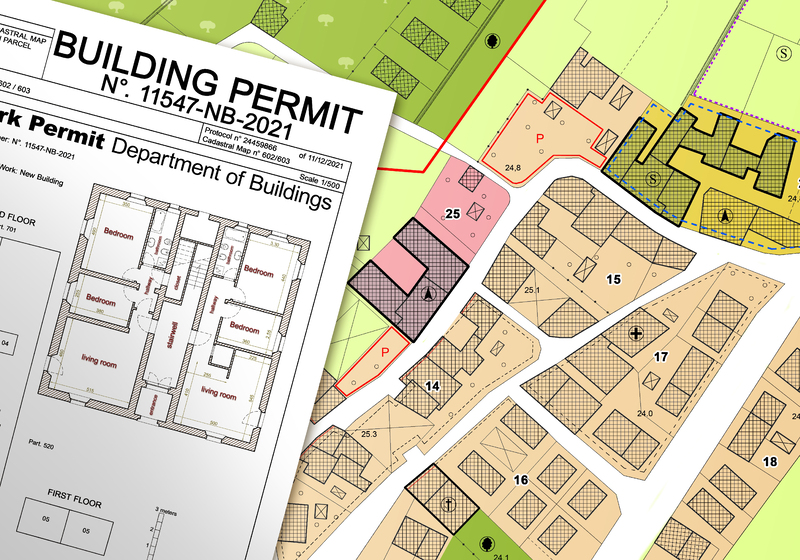The prospect of becoming a new homeowner is undoubtedly an exciting one. Sure, there are plenty of stressful aspects to consider, but the possibilities floating in homebuyers’ minds can be nearly endless. However, there are some limiting factors that every homeowner should be aware of before starting any ambitious projects on their new properties.
Some might be under the impression that they are free to do what they like on their own property, but local governments have long-held zoning laws meant to protect their citizens. To navigate the world of zoning laws with confidence, let’s break down what they are, and how they might change your next home improvement project.
What Are Zoning Laws?
Zoning laws have a long history stretching back to the early 20th-century as governments outlined the distinction between what property owners could do on their land and what local governments could do to limit those actions. In short, they are rules that dictate what sorts of buildings exist and where they are built.
Over time, common standards were developed with the public in mind. For example, zoning laws restrict where industrial buildings can be established. Residential zones are largely protected from being near large production facilities where oil, gas, or dangerous machinery can become hazards for nearby families.
These rules and regulations vary widely from municipality to municipality, sometimes with light regulations restricting sizes and shapes of buildings or separating commercial districts from residential districts. Other times, these zoning laws can be more restrictive, however, limiting a homeowner’s ability to add a detached garage, or even restricting the manner in which a yard is landscaped.
It is important to note that zoning laws are distinct from rules supplied by a homeowner association (HOA). Zoning laws are backed by the local government, and breaking their ordinances could result in hefty fines.
What Do They Mean For Homeowners?
Homeowners should always familiarize themselves with their local zoning laws, especially before beginning any major renovations of their homes. Additionally, anyone in the market for a new home should consider these ordinances before making long-term plans for their prospective purchase.
One of the most common situations that can get homeowners in trouble is when they proceed with any wide-scale additions without complying with height or spacing restrictions. Homes not only need to stay within the boundaries of their property, but local regulations likely define a specific setback distance between a structure and the property’s limits. In addition, attention towards total floor space compared to the lot size is often regulated.
One type of addition that has been gaining popularity and that can raise a property’s overall value is an accessory dwelling unit (ADU). ADUs are independent residential structures that inhabit the same land as a single-family home. They can be attached or detached from the primary residence (sometimes then referred to as “DADUs”), but are often subject to a large number of restrictions based on zoning laws. Things like detached garages, pool houses, or additional rental properties are therefore often restricted on residential properties.
How Can You Work With Zoning Laws?
Whether you are a current homeowner or someone in the market for a new property, you should always check on the zoning laws in your area. While many additions and builds are likely restricted or regulated in some way, it would be incorrect to assume that your dream project is out of the question.
All zoning laws, maps, and ordinances are freely available by law and can be obtained by reaching out to your local government. Oftentimes, this information can be obtained online through the city’s website.
Should your planned addition be restricted, options are still available. Inquire about what permits or exceptions that you can apply for with your build in mind. Depending on your local zoning board, your odds of being granted a special permission should be good so long as safety standards are considered, along with state and national guidelines.
Remember, zoning laws exist to protect communities and to unlock economic growth. In addition, all ordinances are made to be adaptable. When needed, reach out to an attorney or other expert for appropriate counsel.
Every big project should start with a professional home inspection to ensure a safe and cost-effective strategy. Start with NPI before you buy.



